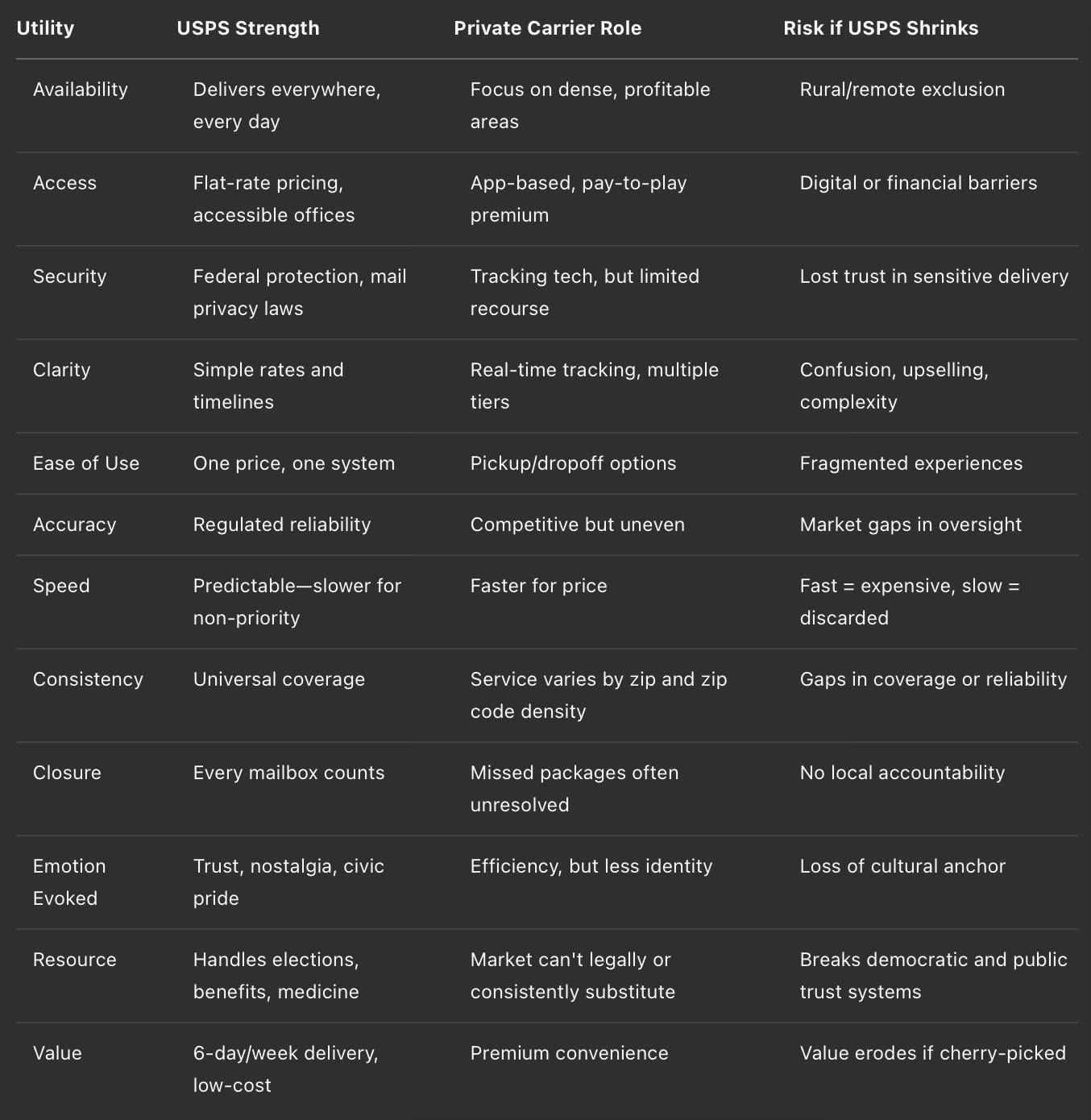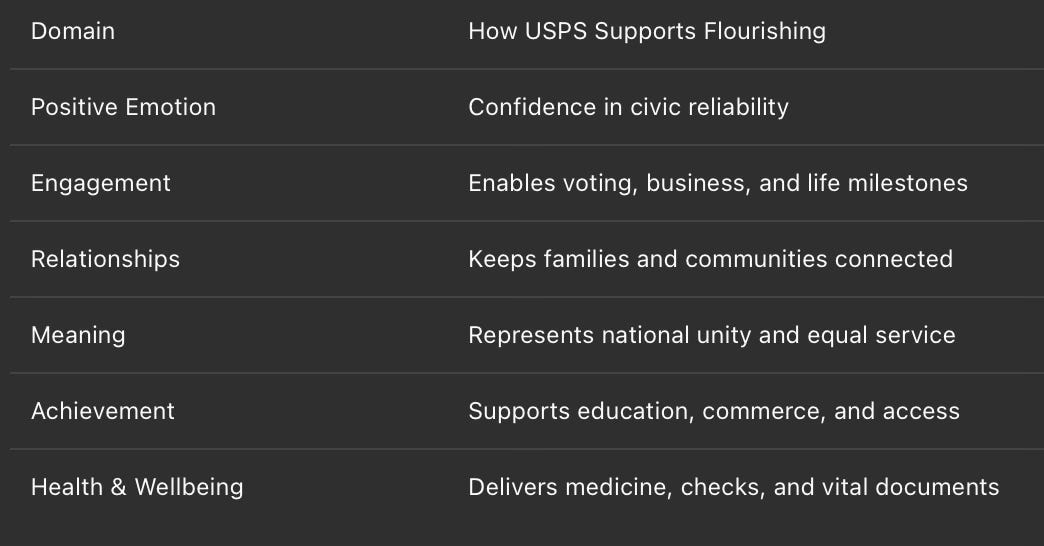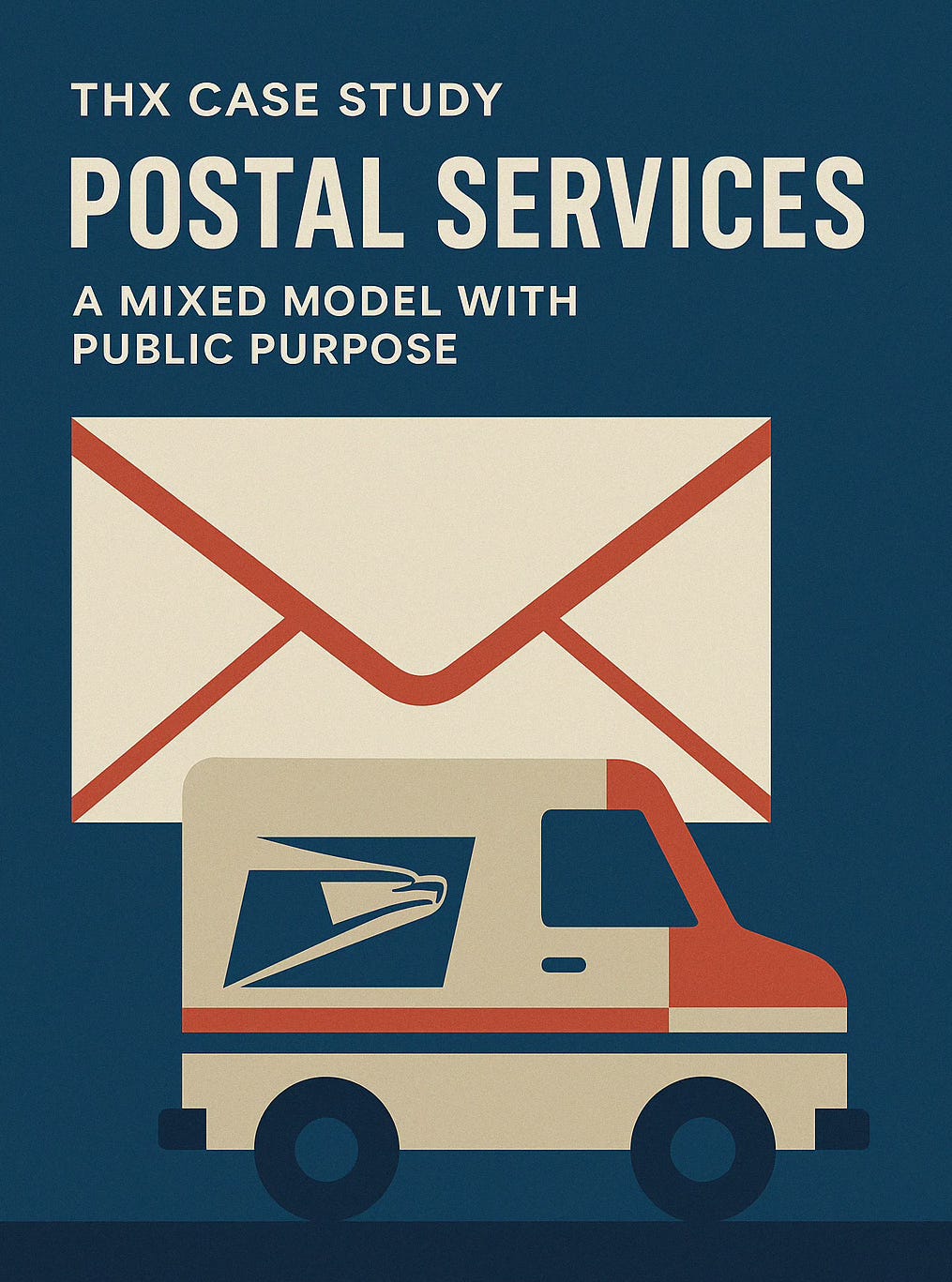THX Case Study: Postal Services — A Mixed Model with Public Purpose
From the THX Series Hub: Government That Works
Exploring where government mail services matter most—and where private carriers can complement, not replace.
What’s at Stake
The U.S. Postal Service (USPS) delivers to every address in the country—urban, rural, remote—regardless of profit. That’s not just a convenience; it’s a democratic infrastructure.
But the rise of FedEx, UPS, Amazon, and digital communication has transformed expectations. Some argue the USPS is obsolete or wasteful. Others believe it's more essential than ever for equity, resilience, and national trust.
So where should the line be drawn between public mission and private market?
THX Framework Quick Guide
The 12 Utilities — A tool to measure whether a service is useful, fair, and functional across the things people actually need.
PERMAH — A framework from positive psychology that helps us ask if something helps people truly flourish—not just survive.
Prospect Theory — A reminder that people feel losses more strongly than gains—so taking something away often hurts more than adding something helps.
Admiration Equation — Explains how people build lasting loyalty through skill, goodness, awe, and gratitude—not just results.
Micro-Moments — The little experiences that shape how people feel, trust, and remember a service—or a system—for life.
(For a deeper dive, see the full THX Framework introduction post.)
The 12 Utilities
Verdict: A mixed system works—but only if the USPS remains the backbone.
PERMAH Impact
The USPS does more than deliver mail. It delivers belonging.
Prospect Theory: What’s the Cost of Losing It?
Eliminate Saturday delivery and people notice.
Close local post offices and people protest.
Privatize the service and rural areas suffer first.
People rarely fight for something unless they’ve already felt what it’s like to lose it.
Admiration Equation
Skill: Coordinating millions of deliveries across climate and geography
Goodness: Equal service, no matter your income or zip code
Awe: Every mailbox, every person, every day
Gratitude: “They still deliver—even when no one else will.”
When respected, the USPS becomes a symbol of national care—not just logistics.
Micro-Moments
A birthday card arriving just in time
A check that helps make rent
A package delivered to the only house on a snowy road
Mail is mundane—until it matters. And then it matters deeply.
Examples
USPS Election Role:
In the 2020 U.S. presidential election, over 160 million ballots were cast—more than 40% of them by mail. Despite budget constraints and political scrutiny, USPS delivered nearly all ballots on time.
Without the USPS, universal vote-by-mail would not be feasible, especially in rural or under-resourced communities.
Amazon’s Last-Mile Reliance:
Amazon relies on the USPS to complete last-mile delivery to over 30 million addresses that private drivers avoid due to cost.
Even as Amazon builds its own fleet, it depends on the public system to reach every home—even those with unpaved roads or steep driveways.
UK Post Privatization (Royal Mail):
Since privatizing Royal Mail in 2013, critics have noted increased delivery costs, reduced rural service, and labor unrest.
The shift to profit-driven metrics has led to missed delivery targets and public backlash, especially in low-density areas.
Swiss Post Model:
Switzerland maintains a publicly owned postal system with expanded services—banking, logistics, digital IDs—anchored in universal trust.
It consistently ranks among the most reliable and efficient in the world, showing that modernization doesn't require privatization.
Global and Private Comparisons
FedEx and UPS offer speed—but prioritize profit zones and package size.
Amazon increasingly uses USPS for last-mile delivery in unprofitable areas.
In many European countries, privatization has led to service fragmentation, job losses, and fee-based tiering.
The U.S. has something rare: a postal system rooted in equal access, not revenue.
Final Thought
The USPS doesn’t need to compete—it needs to complement.
Public systems should serve everyone, not just the most profitable. That’s what makes the Postal Service a civic engine, not just a shipping option.
Let the private market innovate on convenience and speed. But protect the public commitment that holds the network—and the nation—together.






